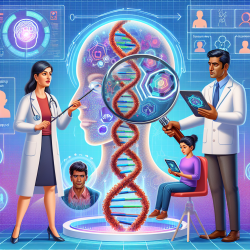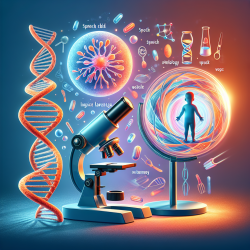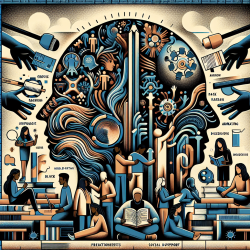Empowering Practitioners: Harnessing Machine Learning for Epigenetic Insights
As a practitioner dedicated to creating the best outcomes for children, staying abreast of the latest research and technological advancements is crucial. One such advancement is the integration of machine learning (ML) in the field of epigenetics, which holds immense promise for medical applications. The recent research article titled "Machine Learning for Epigenetics and Future Medical Applications" by Holder et al. (2017) provides valuable insights into how ML can be leveraged to predict and understand epigenetic changes associated with diseases. This blog aims to distill the key findings from this research and offer practical steps for practitioners to enhance their skills and encourage further exploration in this burgeoning field.
Understanding the Research
The study by Holder et al. (2017) highlights the potential of machine learning to predict genome-wide locations of critical epimutations, which are changes in the epigenome that can influence gene expression without altering the DNA sequence. The research employs a combination of Active Learning (ACL) and Imbalanced Class Learning (ICL) to address the challenges of feature selection and data imbalance in genomic datasets. Additionally, the study suggests the integration of Deep Learning (DL) to generate and compute novel genomic features, enhancing the accuracy and efficiency of epigenetic predictions.
Key Machine Learning Techniques
To implement the findings of this research, practitioners should familiarize themselves with the following ML techniques:
- Active Learning (ACL): This technique optimizes the use of expert knowledge by selecting only the most informative instances for labeling, thereby reducing the time and cost associated with data annotation.
- Imbalanced Class Learning (ICL): ICL addresses the issue of unequal class distribution in datasets, ensuring that minority classes, which are often of greater interest, are adequately represented in the learning process.
- Deep Learning (DL): DL involves the use of multi-layer neural networks to automatically generate complex features from raw data, significantly improving the prediction of epigenetic phenomena.
Applications in Practice
Practitioners can leverage these ML techniques to enhance their understanding and prediction of epigenetic changes in various medical conditions. Here are some practical steps to get started:
- Stay Informed: Regularly review the latest research in ML and epigenetics to stay updated on new methodologies and findings.
- Collaborate with Experts: Work with data scientists and bioinformaticians to implement ML techniques in your practice. Their expertise can help in setting up and interpreting ML models.
- Utilize Available Tools: There are several open-source ML tools and libraries available that can be used to analyze epigenetic data. Familiarize yourself with these tools and incorporate them into your research and practice.
- Participate in Training: Attend workshops, webinars, and courses focused on ML and bioinformatics to enhance your skills and knowledge.
Encouraging Further Research
The integration of ML in epigenetics is still an evolving field, and there is much to be explored. Practitioners are encouraged to engage in research activities, collaborate with academic institutions, and contribute to the growing body of knowledge. By doing so, you can help uncover new insights and develop innovative solutions that can significantly impact child outcomes.
To read the original research paper, please follow this link: Machine learning for epigenetics and future medical applications.










